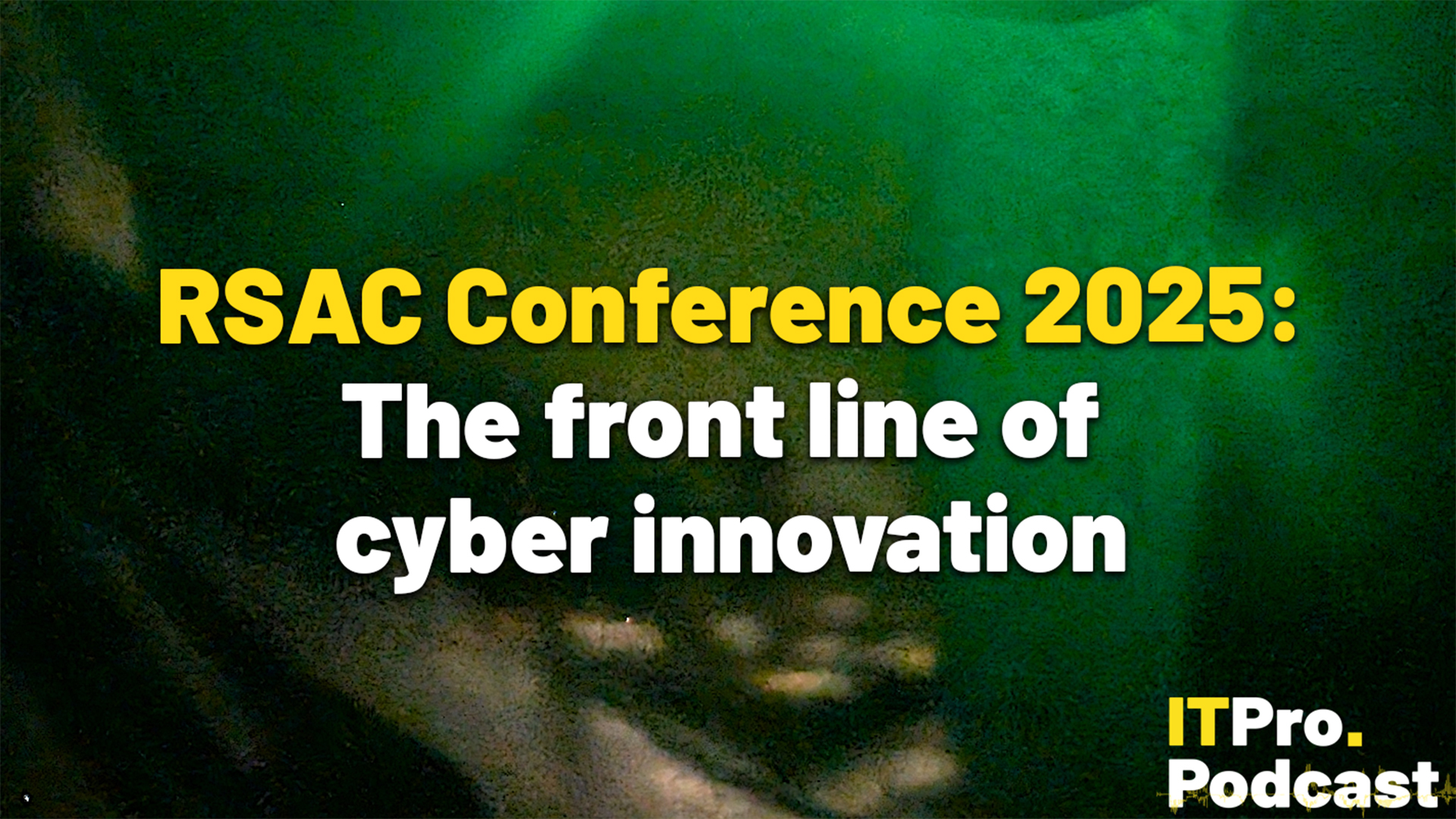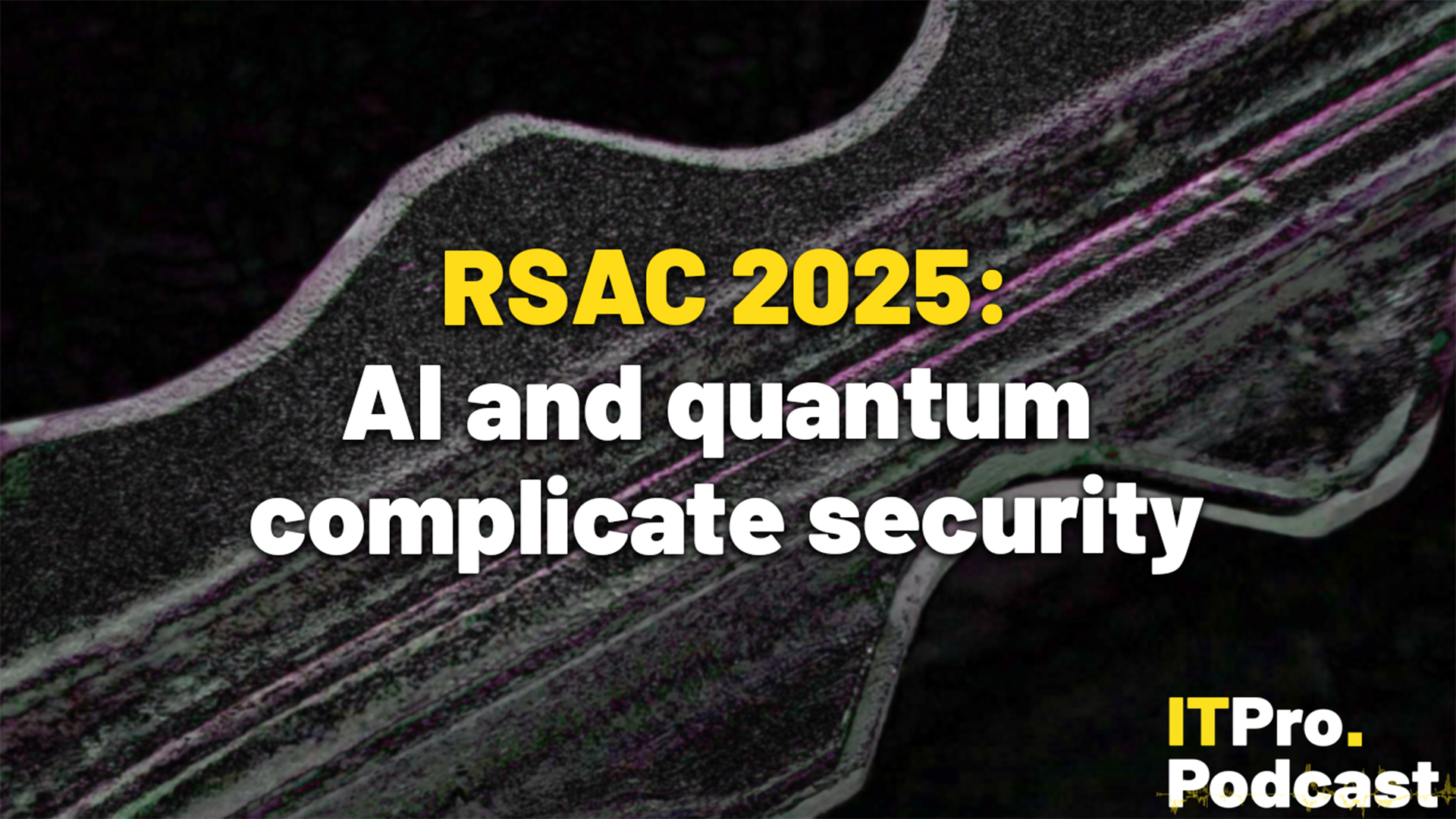RSA Europe: Microsoft praises UK e-crime unit
Microsoft chief security advisor and ex FBI-agent hails the new Police Central e-crime unit as a possible turning point in the battle against cyber criminals.

The chief security advisor of Microsoft, Edward Gibson, has declared the creation of the Police Central e-crime unit as a huge step' in the fight against cybercrime.
Gibson, speaking to IT PRO at RSA Europe 2008, said that some of his time since September of last year was spent working with several MP's and Lords who were looking to support the proposed e-crime unit at the time.
Ex-FBI agent Gibson and other members of Microsoft also provided testimony in the House of Lords report, which was critical against the government and led to the unit's creation.
Of criticism that the 7 million funding was not enough, he said: "It's a huge step forward. I don't care whether its 50 or 50 million. It sends a signal to organised crime that this country is no longer going to be a safe haven to their activities."
The advisor said that the perception had been that there was something wrong in police efforts against cybercrime. He said that with SOCA, because it was engaging with sensitive work, there was much that it couldn't talk about.
This meant that there was a perception that the less serious crimes which the new e-crime unit will be focusing on weren't previously being dealt with.
He claimed: "With the new e-crime unit working hand in hand with the new strategic fraud authority, its going to work on a scale that wasn't even there with the old National Hi-Tech Crime Unit (NHTCU). We are going to see a dramatic difference."
Sign up today and you will receive a free copy of our Future Focus 2025 report - the leading guidance on AI, cybersecurity and other IT challenges as per 700+ senior executives
He also said that vendor involvement was critical, and that Microsoft was going to be heavily involved in providing technology to the e-crime unit, with Gibson directly involved.
He talked of an idea by Detective Superintendent Charlie McMurdie, who is heavily involved in the creation of the e-crime unit, that it was possible to become a technology equivalent of a police community support officer, in that rather be patrolling the streets you would be working for the Police Central e-crime unit.
He said: "Let's say a Microsoft person was assigned to work for the Police Central e-crime unit for a few hours a day or weekend. They've got that outside expertise if we can bring in them like in other volunteer services."
For more coverage and photos from the RSA show, click here.
-
 What is Microsoft Maia?
What is Microsoft Maia?Explainer Microsoft's in-house chip is planned to a core aspect of Microsoft Copilot and future Azure AI offerings
-
 If Satya Nadella wants us to take AI seriously, let’s forget about mass adoption and start with a return on investment for those already using it
If Satya Nadella wants us to take AI seriously, let’s forget about mass adoption and start with a return on investment for those already using itOpinion If Satya Nadella wants us to take AI seriously, let's start with ROI for businesses
-
 RSAC in focus: Key takeaways for CISOs
RSAC in focus: Key takeaways for CISOsThe RSAC Conference 2025 spotlighted pivotal advancements in agentic AI, identity security, and collaborative defense strategies, shaping the evolving mandate for CISOs.
-
 RSAC in focus: Quantum computing and security
RSAC in focus: Quantum computing and securityExperts at RSAC 2025 emphasize the need for urgent action to secure data against future cryptographic risks posed by quantum computing
-
 RSAC in focus: How AI is improving cybersecurity
RSAC in focus: How AI is improving cybersecurityAI is revolutionizing cybersecurity by enhancing threat detection, automating defenses, and letting IT professionals tackle evolving digital challenges.
-
 RSAC in focus: Collaboration in cybersecurity
RSAC in focus: Collaboration in cybersecurityExperts at RSA Conference 2025 emphasised that collaboration across sectors and shared intelligence are pivotal to addressing the evolving challenges of cybersecurity.
-
 RSAC in focus: Considerations and possibilities for the remainder of 2025
RSAC in focus: Considerations and possibilities for the remainder of 2025As 2025 unfolds, RSAC explores the pivotal considerations and emerging possibilities shaping the cybersecurity landscape
-
 RSAC Conference 2025: The front line of cyber innovation
RSAC Conference 2025: The front line of cyber innovationITPro Podcast Ransomware, quantum computing, and an unsurprising focus on AI were highlights of this year's event
-
 RSAC Conference 2025: AI and quantum complicate security
RSAC Conference 2025: AI and quantum complicate securityOrganizations are grappling with the complications of adopting AI for security
-
 RSAC Conference 2025 was a sobering reminder of the challenges facing cybersecurity professionals
RSAC Conference 2025 was a sobering reminder of the challenges facing cybersecurity professionalsAnalysis Despite widespread optimism on how AI can help those in cybersecurity, it’s clear that the threat landscape is more complex than ever